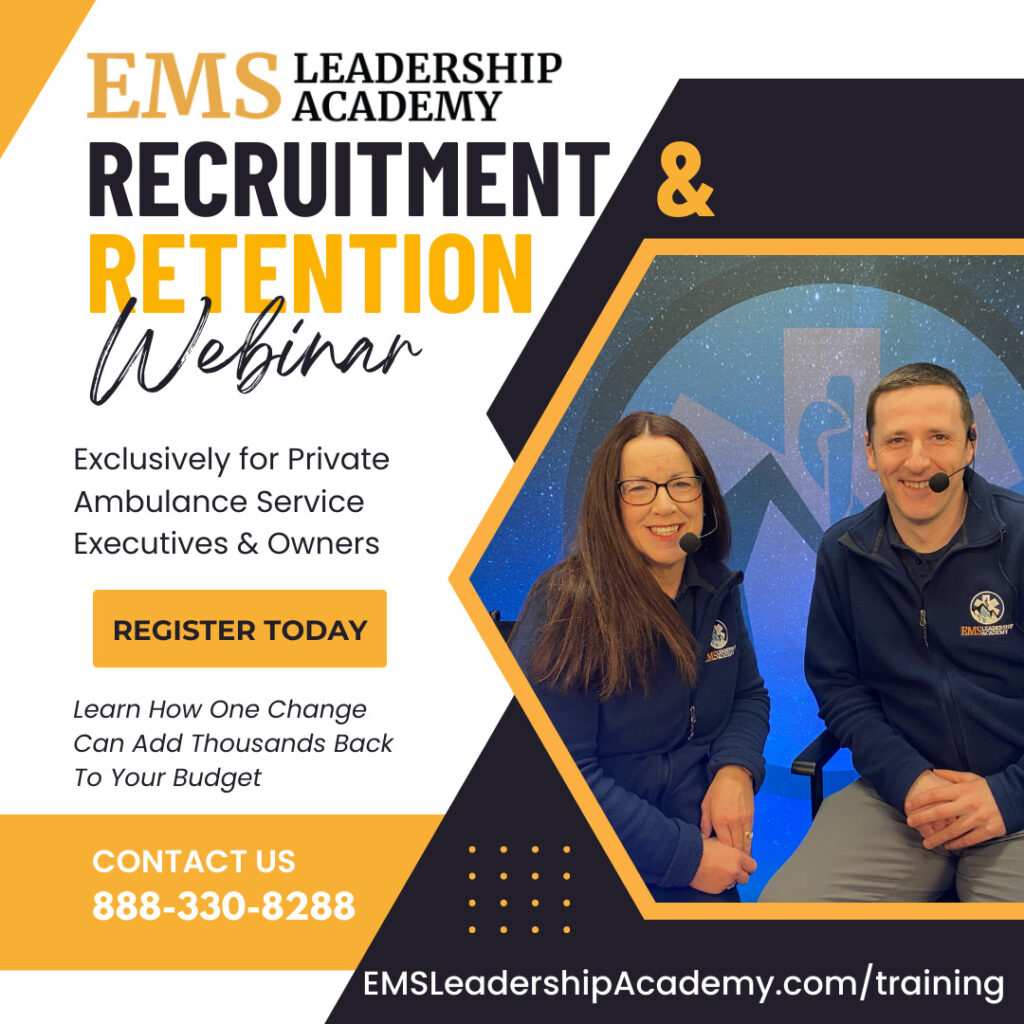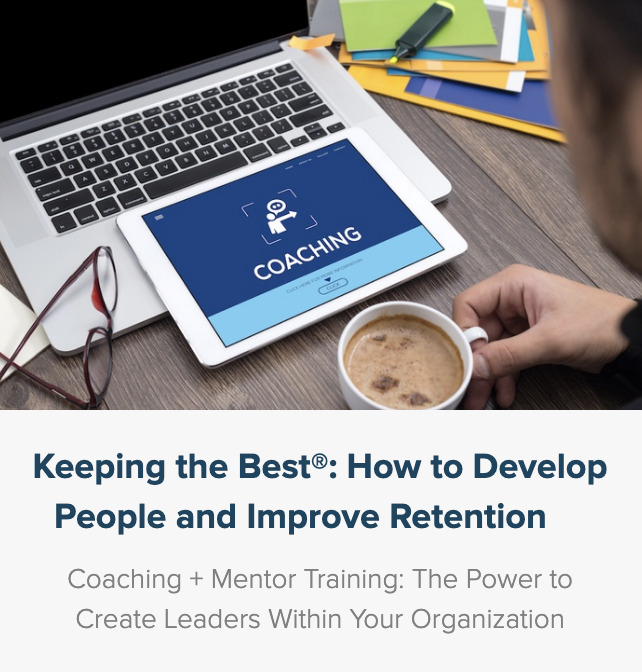- Are you treating yourself and other EMS personnel as professionals? This is a very important aspect of this question. Too often people see themselves as “just EMS” or compare EMS to others in the medical profession rather than see themselves and the industry as a crucial aspect of healthcare. It starts with how you see yourself. What you expect you get.
- Appearance is important, you don’t see doctors showing up without a white coat or in a suit/tie.Uniforms communicate & details matter:
- Are people wearing sneakers or do they have uniform footwear? Do people wear jeans or do they have a uniform appearance? Clean shaven (for PPE reasons alone), tucked in shirts & belts. All of these details matter,
- Language and affective domain skills development matter.
- Many EMS education programs focus on psychomotor skills and cognitive skills, we need to develop more in the affective domain as well.
- Degree advancement will be critical to advancing the profession.
- We are where nurses were in the last century - The first university bachelors degree program was in Minnesota in 1909. It wasn’t until the “The federal Nurse Training Act of 1964 pumped enormous funding into collegiate nursing education, spurring development of [more] baccalaureate, advanced practice and PhD programs, but serious movement of nursing students into universities didn’t happen until the 1980s.
- Many paramedic programs are just a few credits away from at least an associates degree. Columbia Southern University & Creighton University have offered advanced degree programs programs online, this video has a more comprehensive list.
- There are PhD programs for paramedics in Australia, through Monash University. Advanced degree paramedics in Australia & in the UK have obtained prescribing rights.
What can you do?
- As an organization, make a case for hiring or providing funding for people to obtain their degree.
- As part of your onboarding training thinking about how you can develop these “essential skills” If you’re in charge of an accredited paramedic education program, reach out to Julianne Stevenson, creator of Sterling Credentials, on LinkedIn.
- For more leadership resources, visit our annual free virtual conference at www.EMSLeadershipSummit.com
Welcome to today's EMS leadership, Q and A I'm Lisa Giruzzi. And I'm here with Robbie MacCue. We are the co-founders of the EMS leadership Academy. And for those of you that don't know, we help EMS leaders bring out the best in themselves and others. And this week's question is how do I develop a better relationship with other agencies and organizations? And I think this is,
this gets brought up around fire departments, town boards, you know, other neighboring EMS departments, police departments. And I think it's used slowing one suggestion would be considered slowing down. And, you know, as a leader, things are coming at you a mile a minute, right? You're you may be in a state of like constantly feeling out you're putting out fires and,
and situations are gonna pop up, but slowing down and making it a priority or a goal for the future of your organization. You know, if you don't have a plan, it's probably not going to happen. Yeah. And it's truly like anything. I mean, the key to improvement in anything is time and attention. If you set aside time in your schedule to work on this,
it will happen. And it's kind of like dating. And I don't mean to trivialize the importance of these relationships with other organizations, but it is like that. It's like, you know, you start somewhere, right? You start w w with some step to building that relationship, you're not going to go from dating to marriage in the same week, hopefully.
Right. It's a process. And so seeing this as a process and giving it time and attention will definitely help it improve. I think it's an opportunity to, to open the lines of communication, introducing yourself, you know, finding a point of contact. It's really important, I think for your department to have a liaison to your town board as well,
that was also in this question and, you know, get on their calendar, present at least annually about your department's performance and goals. It's very important for those elected officials to have an idea of who you are, because more than likely they don't know the difference between an EMT and paramedic. I think our jobs are, we do. Sometimes we do such a good job at what we do.
We don't tend to think about, do people understand what we really do? It's that, you know, the building fire catches the six o'clock news and the work that the fire departments do, or the police that apprehended a bank robber, or somebody with guns, but you don't really hear about the paramedics who saved someone's life on the soccer field, or,
you know, the, the massive volume of calls that your department is doing, taking care of people in their, in their greatest time of need, but it's, it's your job to educate them. Yeah. If somebody falls in the bathtub and you know, you know, you go a paramedic or goes in, it saves their life. That doesn't make,
not only does it make the news, but other than that family who hears about that, you know, the 10 park car pile up, maybe, but not the, you know, elderly person who falls in there, bathtub or something. The other thing I think that's important is to w you know, think about if you want a better relationship with other organizations.
I think it's important to get curious about them. Like, what are they up to, you know, what's important to them. Can you offer assistance to the other agencies to help them achieve their goals, or what's important to them? I think you have to let go of past assumptions and stories of why the relationships aren't better and think about what would be in it for the other organizations to have a good relationship with you.
I mean, you're probably clear about why you want to have a good relationship with the other organization, but think about what would be, how would it be beneficial to the other organization to have a good relationship with you? Like, you know, w why would they want to collaborate? And then how will you all benefit? That's a great point. And just thinking about what we do and those,
you know, high stress situations that are very lower frequency, think about your first responders, your fire departments, or police departments, how you could work together, perhaps training for safe patient restraint, assisting with CPR, AED training, or that high performance CPR concept, dealing with overdoses that are becoming more frequent and how, how you can help the first responders really understand maybe more of the nuances of those situations.
So it's not as stressful if they train for it, they're prepared for it and doing the minimum, you know, CPR, renewal every two years is, is adequate, but it's, it's definitely not going to produce a high performance team. Yeah. And if you can assist them with their biggest problems, right. They're gonna want to help you too.
Right. And it's so important that first responders work together. Cause you're often on the scenes together. You're, you know, and if you're just silos doing your thing, that's not as helpful to the patients as everybody knows. So I do think that it's sort of like you started out, which was so important to slowing down, create your plan and get started to just develop that momentum.
I do think it's helpful to check out the mini course that we have. I know we talk about it a lot. Don't let the name mini fool. You, it's a very powerful course in many, just because you can finish it in a week easily, but there are exercises in there, one in which you interview other people, and I it's focused on interviewing other people on your team,
but you could use that same interview too, with other people in other organizations as a way of making connections. Absolutely. I love that exercise of a high point experience. And when you're doing that exercise and when I've heard people doing this, they re people that are telling their stories. They just relive that moment. And it just creates such a great feeling.
And you get to the essence of why people do what they do. So, yeah. Imagine interviewing a police officer or a, another person about their high point experience they've had with your organization. And if they haven't had one, then that's something really interesting to know and wonder about. But imagine if you have a police officer saying, oh, on this one call and the EMS was so awesome,
like that brings that forth and, and helps folks want to have a better relationship with each other. Absolutely. Well, that was great. Thank you. And if you have a question to submit, you can send us a question at support at EMS leadership academy or leave us a voicemail (888) 330-8288. And thanks everyone for joining us this week. Thank you.





A good P.I.O. to help change the public image of your agency in the local area can make a difference.
Public education, on what we actually do can build that trust with the community.
publicly celebrating accomplishments of your staff and the agency as a whole can build individual confidence, team cohesion and confidence, as well as some healthy competition among the crews driving and motivating individuals as well as the entire squad.
I would like to develop a national Accommodation plan for award bars like military uniform ribbons for that purpose. but it is a huge cost. they have a few bars like EMT, Paramedic, Saves, Rosc, PIO, FTO, Stork pins, Purple heart, but nothing for respiratory save, Anaphylaxis save, P1 trauma save, Stop the Bleed save. I know this may seem like a small thing but getting a new bar nest year for (and tally up the numbers year to year, (8 ROSC’s) in a year adding up to you carrier total, (0-10) saves for a year leading up to a carrier total, in line with that thinking might help building people up before an incident. the uniform bars can help build public trust knowing that person is a decorated EMS Provider.
that also helps with retention and credibility.
think of the intro on a news story (we are here with BOB from our local EMS station with (-) so many years’ experience as a lead provider, Mutiple time decorated CPT. BOB talking to us about road way safety as the weather is getting to change for the better, he wants to remind us that roadway safety is everyone’s job, and how we can help our first responders.
in the public Eye BOB looks fare more creditable.